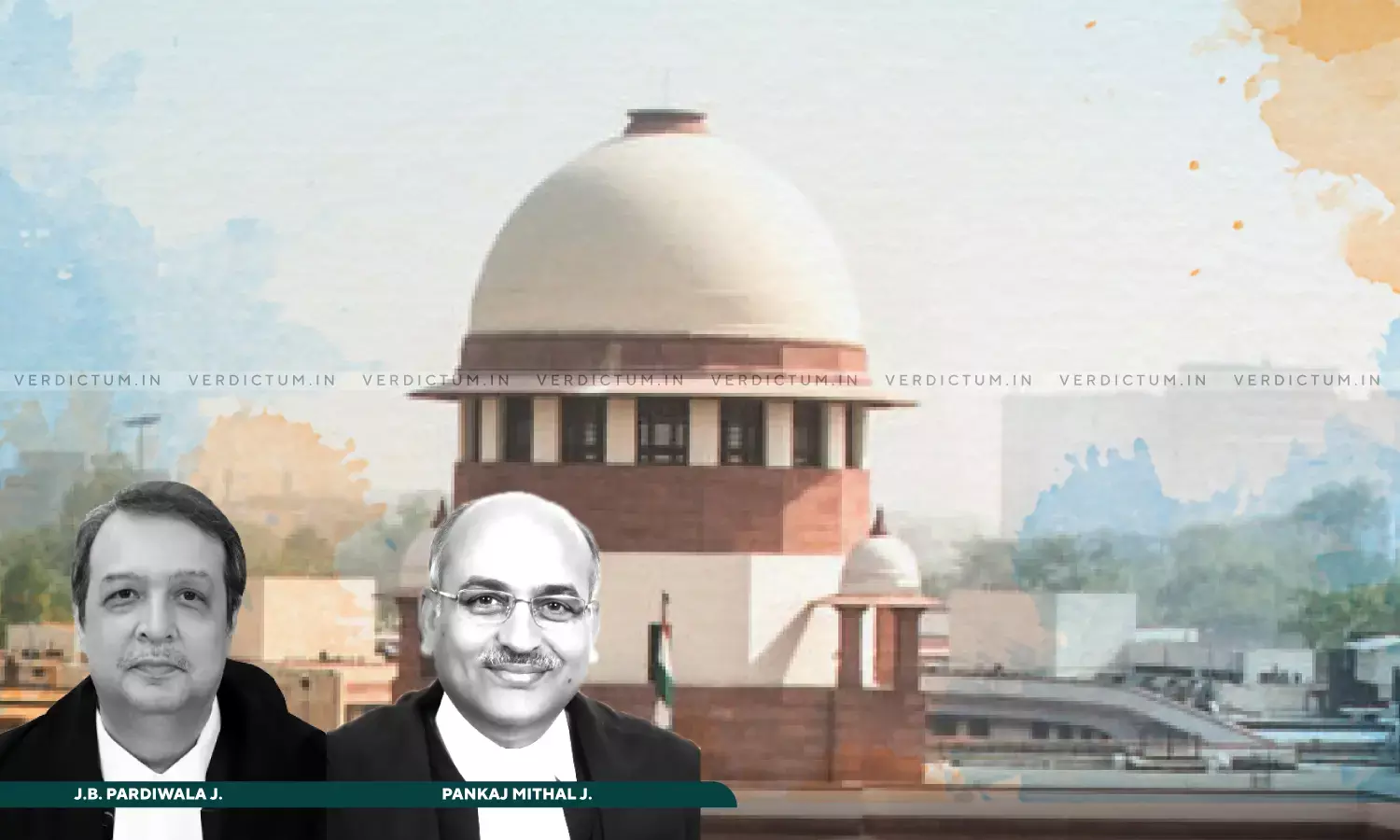Order XXI Rule 97 CPC Also Provides Remedy To Stranger Who Obstructs Or Resists Delivery Of Possession Of Property: Supreme Court
The Supreme Court noted that Order XXI Rules 97 to 101 of CPC deal with a situation when execution is obstructed or resisted by “any person” claiming right, title, or interest in the property, and the words “any person” include even a stranger.

The Supreme Court in its recent Judgment, observed that Order XXI Rule 97 of the Civil Procedure Code, 1908 (CPC) also provides remedy to a stranger who obstructs or resists delivery of possession of the property by claiming derivative title.
The Court observed thus in Civil Appeals filed against the common Judgment of the Madras High Court, by which it rejected the Revision Petitions and affirmed the Orders of the Additional Subordinate Judge (ASJ), allowing the Application under Section 47 of the CPC and rejecting the one seeking amendment in the Execution Petition.
The two-Judge Bench of Justice J.B. Pardiwala and Justice Pankaj Mithal held, “… Rule 97 not only provides remedy to a decree holder in obtaining possession of an immovable property but also to a stranger who obstructs or resists delivery of possession of the property by claiming derivative title from the judgment debtor or independent right, title or interest in the decretal property. Whereas, Rule 99 gives right to a third party claiming right, title or interest in the property to seek restoration of the decretal property. Suffice it to say that the remedy under Rule 99 is available when a person claiming right to the decretal property is already dispossessed.”
The Bench noted that Rules 97 to 101 deal with situation when execution is obstructed or resisted by “any person” claiming right, title or interest in the property and the words “any person” include even a stranger to a decree resisting the decree of possession as not being bound by a decree or by claiming independent right, title or interest to the property.
Senior Advocate Senthil Jagadeesan represented the Appellants while Senior Advocate K. Parmeshwar and AOR Rahul Jain represented the Respondents.
Reasoning
The Supreme Court after hearing the contentions of the counsel, said, “A harmonious reading of Section 47 with Order XXI Rule 101 implies that questions relating to right, title or interest in a decretal property must be related to the execution, discharge or satisfaction of the decree. The import of such a reading of the provisions is that only matters arising subsequent to the passing of the decree can be determined by an executing court under Section 47 and Order XXI Rule 101.”
The Court was of the view that there is no question of deciding the validity of the Decree on the ground of being a nullity due to lack of jurisdiction of the Civil Court to evict cultivating tenants in this case.
“It is a settled position of law that an application under Order XXI Rule 97 may be made in respect of obstruction raised by any person in obtaining possession of the decretal property. The courts adjudicating such application have to do so in accordance with Rule 101 and hold a full-fledged inquiry to determine all questions including questions relating to right, title or interest in the property arising between the parties”, it further reiterated.
The Court observed that if an application under Order XXI Rule 97 is made, then its determination will be under Rule 101 and then Rule 103 further provides that where any application has been adjudicated upon under Rules 98 or 100, the Order made thereon shall have the same force and will be subject to the same conditions as to an Appeal or otherwise as if it were a decree.
“The mandatory direction contained in Para 42.12 of Rahul S. Shah (supra) requiring the execution proceedings to be completed within six months from the date of filing, has been reiterated by this Court in its order in Bhoj Raj Garg v. Goyal Education and Welfare Society & Ors., Special Leave Petition (C) Nos. 19654 of 2022”, it also emphasised.
The Court, therefore, directed all the High Courts across the country to call for the necessary information from their respective District Judiciary as regards pendency of the Execution Petitions.
Accordingly, the Apex Court allowed the Appeals and set aside the impugned Judgment.
Cause Title- Periyammal (Dead) Through LRs & Ors. v. V. Rajamani & Anr. Etc. (Neutral Citation: 2025 INSC 329)
Appearance:
Appellants: Senior Advocate Senthil Jagadeesan and AOR Mrinal Kanwar.
Respondents: Senior Advocate K. Parmeshwar, AORs Rahul Jain, Vishnu Shankar Jain, and Advocate Raji Gururaj.


